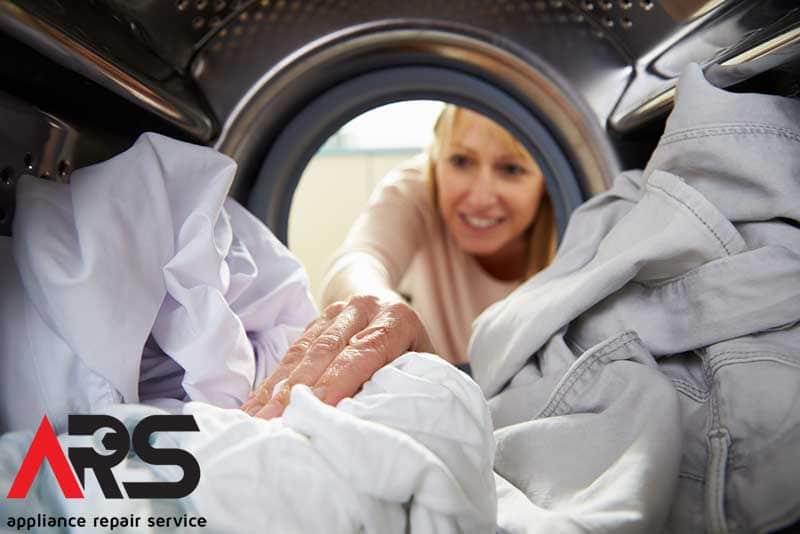
Appliance Maintenance
Hey ARS readers, it’s been a while since we’ve connected through our blog, and we’ve missed sharing valuable insights with you! As we dive back into the world of appliance repair, we’re thrilled to touch base and discuss some essential tips that could save you time, money, and hassle in the long run.
In appliance repair, every detail counts. From the seemingly minor nuances to the major components, each aspect plays a crucial role in the functionality and longevity of your appliances. Today, we’re focusing on those small things – the often-overlooked maintenance tasks and precautions that can make a world of difference in keeping your appliances running smoothly.
At the heart of our discussion lies an idea that resonates deeply with our expertise and passion: “maintenance.” It’s a word that encapsulates the proactive approach we advocate for when it comes to caring for your appliances. Maintenance isn’t just about fixing problems when they arise; it’s about taking preventive measures to minimize the likelihood of issues occurring in the first place.
Why is maintenance so important, you might ask? Day in and day out, your appliances work tirelessly to keep your food fresh, your clothes clean, and your home comfortable. But like any hardworking individual, they need a little TLC to perform at their best.
Imagine your refrigerator humming along, keeping your groceries chilled and your beverages frosty. But beneath its sleek exterior, its coils are caked with dust and debris, forcing it to work harder to maintain the desired temperature. Over time, this strain can lead to decreased efficiency, higher energy bills, and even premature breakdowns.
Similarly, picture your trusty washing machine dutifully cleaning load after a load of laundry. But with each cycle, moisture lingers, creating the perfect breeding ground for mold and mildew. Without proper ventilation and maintenance, that musty odor could soon permeate your clothes and your home.
These scenarios illustrate just a glimpse of the importance of routine maintenance in appliance care. By staying proactive and addressing the small things, you can prolong the lifespan of your appliances, optimize their performance, and avoid costly repairs down the line.
So, without further ado, let’s roll up our sleeves and embark on a journey to master the art of appliance repair, one small thing at a time. Welcome back to the ARS blog – let’s make your appliances shine!
Should I Move My Appliance Before Repair?
Before you start shifting your appliances around, it’s crucial to consider the advice of your technician. But why is it so important to avoid moving your appliance until instructed to do so? Let’s explore the reasons behind this recommendation in detail.
Why You Should Listen to Your Technician:
- Preserve Appliance Integrity: Your technician’s guidance is rooted in preserving the integrity of your appliance. Moving it without proper knowledge could exacerbate existing issues or create new ones.
- Safety First: Safety is paramount when dealing with appliances, many of which contain intricate parts and electrical components. Following professional advice minimizes the risk of injury and damage.
- Optimize Repair Process: Trusting your technician’s expertise ensures that the repair process is carried out efficiently and effectively, saving you time and money in the long run.
Technical Reasons Behind the Recommendation:
- Internal Damage Risk: Appliances house delicate internal components that can be easily damaged during movement. For example, jostling a refrigerator could harm its compressor or refrigerant lines.
- Alignment and Calibration: Many appliances require precise alignment and calibration for optimal performance. Moving them without proper care can disrupt this alignment, leading to functional issues.
- Preserve Warranty Coverage: Most warranties stipulate that tampering with or moving the appliance without professional guidance voids the warranty. Adhering to your technician’s instructions safeguards your warranty coverage.
Expert Advice:
- “When in doubt, always consult your technician before attempting to move your appliance. It’s better to err on the side of caution.”
- “Follow your technician’s instructions to the letter. Even seemingly minor movements can have significant consequences for your appliance’s functionality.”
By heeding your technician’s advice and refraining from moving your appliance until instructed, you not only protect your appliance from damage but also ensure a smoother repair process. Trust the experts to guide you through the maintenance and repair journey, ultimately prolonging the lifespan of your appliances.
How Can I Prevent Mildew in My Washer?
Dealing with a musty-smelling washer is nobody’s idea of fun. But fear not! With the right preventive measures, you can keep mildew at bay and enjoy fresh laundry every time. Let’s delve into some practical tips to prevent mildew in your washer.
Why Preventing Mildew is Crucial:
- Odor Elimination: Mildew not only causes unpleasant odors in your laundry but can also transfer the smell to your clothes, linens, and towels.
- Health Concerns: Mold and mildew can pose health risks, especially for individuals with respiratory issues or allergies. Preventing mildew helps maintain a healthy environment in your home.
- Appliance Longevity: Mildew can damage internal components of your washer, leading to malfunctions and costly repairs. Preventive measures can extend the lifespan of your appliance.
Practical Tips to Prevent Mildew:
- Leave the Door Open: After completing a laundry cycle, leave the washer door ajar to allow air circulation and prevent moisture buildup.
- Clean the Gasket: Regularly wipe down the door gasket with a solution of vinegar and water to remove mold and mildew buildup.
- Run Maintenance Cycles: Run a cleaning cycle with hot water and a washing machine cleaner or vinegar to sanitize the washer drum and eliminate mold and mildew.
- Use High-Efficiency Detergent: Opt for high-efficiency (HE) detergent specifically formulated for front-loading washers to prevent soap residue buildup, which can contribute to mildew growth.
- Dry Out the Drum: If you won’t be using the washer for an extended period, thoroughly dry the drum and gasket to prevent mildew formation.
Technical Insights into Mildew Growth:
- Moisture Accumulation: Washers create a moist environment ideal for mold and mildew growth, especially in front-loading models with rubber door gaskets.
- Residue Buildup: Soap residue and fabric softener can accumulate in the washer drum and gasket, providing a food source for mold and mildew.
- Lack of Ventilation: Closing the washer door immediately after use traps moisture inside, promoting mildew growth. Proper ventilation is essential to prevent mold and mildew.
Expert Advice:
- “Consistency is key when it comes to preventing mildew. Make these preventive measures part of your regular laundry routine.”
- “If you notice a musty odor in your washer, address it promptly to prevent further mildew growth and maintain a fresh-smelling laundry.”
By implementing these preventive measures and staying vigilant, you can effectively combat mildew growth in your washer, ensuring clean and fresh laundry with every wash. Don’t let mildew dampen your laundry day, take proactive steps to keep your washer mold-free and your clothes smelling delightful.
How Do I Properly Clean My Refrigerator’s Coils?
Your refrigerator works tirelessly to keep your food fresh, but it needs a little TLC to maintain peak performance. One essential maintenance task you shouldn’t overlook is cleaning the refrigerator coils. Let’s explore why cleaning these coils is crucial and how to do it properly.
Importance of Cleaning Refrigerator Coils:
- Optimize Efficiency: Dirty coils inhibit heat transfer, causing the refrigerator to work harder to maintain the desired temperature. Cleaning the coils improves energy efficiency and reduces electricity consumption.
- Prevent Overheating: Accumulated dust and debris on the coils can cause the compressor to overheat, leading to premature failure and costly repairs.
- Extend Lifespan: Regular coil cleaning helps prolong the lifespan of your refrigerator by reducing strain on the compressor and other components.
Steps to Properly Clean Refrigerator Coils:
- Unplug the Refrigerator: Safety first! Before cleaning the coils, unplug the refrigerator or switch off the power at the circuit breaker to avoid electrical hazards.
- Locate the Coils: Depending on your refrigerator model, the coils may be located on the back, underneath, or behind a grille at the front. Consult your owner’s manual if you’re unsure.
- Remove Debris: Use a vacuum cleaner with a soft brush attachment or a coil cleaning brush to gently remove dust and debris from the coils. Work carefully to avoid damaging the coils or other components.
- Clean Surrounding Area: While you’re at it, take the opportunity to clean the area around the coils, including the floor and any nearby surfaces.
- Reconnect and Power On: Once the coils are clean and the area is tidy, plug the refrigerator back in or restore power at the circuit breaker.
Technical Insights into Coil Cleaning:
- Heat Exchange Process: Refrigerator coils facilitate the transfer of heat from inside the refrigerator to the surrounding environment, allowing for efficient cooling.
- Dust and Debris Accumulation: Over time, dust, pet hair, and other debris accumulate on the coils, insulating them and impeding heat transfer.
- Compressor Efficiency: Clean coils allow the compressor to operate more efficiently, reducing energy consumption and extending its lifespan.
Expert Advice:
- “Make coil cleaning part of your regular appliance maintenance routine to ensure optimal refrigerator performance.”
- “If you’re uncomfortable cleaning the coils yourself, don’t hesitate to contact a professional appliance technician for assistance.”
Regularly cleaning your refrigerator coils is essential for maintaining energy efficiency, preventing costly repairs, and extending the lifespan of your appliance. By following these simple steps and staying proactive with maintenance, you can keep your refrigerator running smoothly and your food fresh for years to come.
Why Should I Use Soft Water for My Dishwasher?
Introduction: When it comes to dishwashing, the type of water you use can make a significant difference in the cleanliness and longevity of your dishes and dishwasher. Let’s explore why soft water is the preferred choice for dishwashers and how it can benefit both your dishes and your appliance.
Importance of Using Soft Water:
- Enhanced Cleaning Performance: Soft water contains fewer minerals such as calcium and magnesium, which can leave behind soap scum and residue on dishes. Using soft water ensures a more thorough and effective cleaning process.
- Prevent Limescale Buildup: Hard water contains high levels of minerals that can accumulate as limescale deposits inside the dishwasher, affecting its performance and longevity. Soft water helps prevent limescale buildup, extending the lifespan of your appliance.
- Protects Dishwasher Components: The harsh minerals in hard water can damage dishwasher components over time, leading to malfunctions and costly repairs. Soft water is gentler on internal parts, reducing the risk of damage and prolonging the appliance’s lifespan.
Ways to Ensure Soft Water for Your Dishwasher:
- Install a Water Softener: A water softener system removes minerals from the water supply, ensuring that only soft water enters your dishwasher.
- Use Water Softening Tablets: If installing a water softener is not feasible, you can use water softening tablets or additives specifically designed for dishwashers to achieve similar results.
- Regular Maintenance: Keep your water softener system well-maintained and monitor salt levels to ensure a consistent soft water supply to your dishwasher.
Technical Insights into Soft Water Benefits:
- Reduced Soap Usage: Soft water requires less detergent to create a rich lather, resulting in cleaner dishes with less soap residue.
- Prevention of Scale Formation: Soft water prevents the formation of limescale deposits on heating elements, spray arms, and other dishwasher components, ensuring optimal performance.
- Energy Efficiency: Using soft water in your dishwasher can lead to energy savings by reducing the need for higher water temperatures to compensate for mineral buildup.
Expert Advice:
- “Investing in a water softener system may seem like an upfront expense, but it can save you money in the long run by prolonging the lifespan of your dishwasher and improving cleaning efficiency.”
- “If you’re unsure whether your water is hard or soft, consider having it tested to determine the best course of action for your dishwasher.”
Using soft water in your dishwasher is essential for achieving sparkling-clean dishes, protecting your appliance from damage, and maximizing its lifespan. Whether through a water softener system or specialized additives, prioritize soft water to enjoy superior cleaning performance and efficiency from your dishwasher.
How Often Should I Change My Oven’s Gasket?
The oven gasket may seem like a small component, but it plays a crucial role in ensuring the efficiency and safety of your oven. Let’s explore why the oven gasket is important and how frequently it should be replaced to maintain optimal performance.
Importance of Oven Gaskets:
- Seal Integrity: The oven gasket creates a seal between the oven door and the oven cavity, preventing heat from escaping and maintaining consistent cooking temperatures.
- Energy Efficiency: A damaged or worn gasket can lead to heat loss, requiring the oven to work harder to maintain temperature, thus increasing energy consumption and costs.
- Safety Concerns: An ineffective gasket can allow heat to escape from the oven, posing a risk of burns or other injuries. Additionally, leaks in the seal may result in gas leaks for gas-powered ovens.
Frequency of Gasket Replacement:
- Visual Inspection: Check the condition of your oven gasket regularly for signs of wear, such as cracks, tears, or brittleness. If the gasket is visibly damaged, it should be replaced immediately.
- Every Few Years: Even if there are no visible signs of damage, oven gaskets typically need to be replaced every 3 to 5 years, depending on usage and environmental factors.
- Based on Performance: Pay attention to any changes in oven performance, such as uneven cooking or longer preheating times, as these could indicate a worn-out gasket.
Technical Insights into Gasket Functionality:
- Heat Resistance: Oven gaskets are designed to withstand high temperatures without deteriorating, ensuring a tight seal during cooking.
- Material Composition: Gaskets are often made of heat-resistant materials such as silicone or fiberglass, chosen for their durability and flexibility.
- Seal Effectiveness: A properly functioning gasket is essential for maintaining oven temperature accuracy and preventing heat loss, resulting in evenly cooked food.
Expert Advice:
- “Don’t wait until your oven gasket is visibly damaged to replace it. Regular maintenance and proactive replacement can prevent energy waste and ensure optimal oven performance.”
- “If you’re unsure about the condition of your oven gasket or how to replace it, consult your oven’s user manual or contact a professional technician for assistance.”
Maintaining a functional oven gasket is essential for energy efficiency, cooking performance, and safety. By regularly inspecting and replacing the gasket as needed, you can ensure that your oven operates at its best, providing delicious meals for years to come.
Why Is Regular Dusting of Your Dryer’s Vent Essential?
When it comes to dryer maintenance, regular dusting of the vent might seem like a minor task, but it’s incredibly important for the safety and efficiency of your appliance. Let’s delve into why regular vent cleaning is crucial and how it can prevent potential hazards.
Importance of Regular Vent Cleaning:
- Fire Prevention: Lint buildup in the dryer vent is highly flammable and can pose a serious fire hazard. Regular cleaning reduces the risk of lint igniting and causing a dryer fire.
- Optimal Performance: A clogged dryer vent restricts airflow, causing the dryer to work harder and less efficiently. Cleaning the vent improves airflow, reduces drying times, and saves energy.
- Extended Lifespan: Overheating caused by restricted airflow can damage the dryer’s heating element and other components, leading to costly repairs or premature failure. Regular vent cleaning helps prolong the appliance’s lifespan.
Frequency of Vent Cleaning:
- Every 6-12 Months: It’s recommended to clean your dryer vent at least once every 6 to 12 months, depending on usage. Homes with large families or frequent laundry loads may require more frequent cleaning.
- Visual Inspection: Keep an eye out for signs of lint buildup, such as longer drying times, hot exterior surfaces, or a burning smell during operation. If you notice these signs, clean the vent promptly.
Proper Vent Cleaning Technique:
- Unplug the Dryer: Safety first! Before cleaning the vent, unplug the dryer or switch off the power at the circuit breaker to prevent electrical accidents.
- Remove Lint Screen: Start by removing the lint screen and clearing any lint trapped in the screen or lint trap compartment.
- Vacuum the Vent: Use a vacuum cleaner with a narrow nozzle or a specialized dryer vent cleaning kit to remove lint from the vent hose and duct.
- Inspect and Reassemble: After cleaning, carefully inspect the vent hose and duct for any damage or leaks. Reassemble the dryer and lint screen once the vent is clean.
Technical Insights into Vent Cleaning:
- Airflow Restriction: Lint accumulation restricts airflow in the dryer vent, causing overheating and potentially igniting a fire.
- Efficiency Impact: A clogged vent forces the dryer to run longer to dry clothes, increasing energy consumption and utility bills.
- Safety Considerations: Regular vent cleaning is one of the most effective ways to prevent dryer fires, which are a leading cause of home fires in the United States.
Expert Advice:
- “Don’t underestimate the importance of regular dryer vent cleaning. It’s a simple task that can save lives and protect your investment in your appliance.”
- “If you’re unsure how to clean your dryer vent safely or suspect a more serious issue, don’t hesitate to contact a professional dryer vent cleaning service for assistance.”
Regularly cleaning your dryer vent is essential for preventing fire hazards, optimizing dryer performance, and extending the appliance’s lifespan. By incorporating vent cleaning into your home maintenance routine, you can enjoy peace of mind knowing that your dryer is operating safely and efficiently.
Appliance Maintenance, One Detail at a Time
As we come to the end of our exploration into the nuances of appliance maintenance, it’s clear that paying attention to the small things can make a big difference in the performance, efficiency, and safety of your appliances.
Throughout this journey, we’ve emphasized the importance of listening to your technician’s advice, whether it’s refraining from moving your appliance until instructed or prioritizing soft water for your dishwasher. By trusting the expertise of professionals and following their guidance, you can avoid costly mistakes and ensure optimal performance from your appliances.
We’ve delved into specific maintenance tasks, such as cleaning refrigerator coils, replacing oven gaskets, and regularly dusting dryer vents, highlighting their significance in preserving appliance integrity and functionality. From preventing mildew in your washer to reducing the risk of dryer fires, each maintenance task plays a vital role in keeping your appliances running smoothly.
Just as we began with a focus on the keyword “maintenance,” we conclude with the same emphasis on proactive care for your appliances. By incorporating regular maintenance into your household routine and staying vigilant for signs of wear and tear, you can prolong the lifespan of your appliances, save energy and money, and ensure a safer environment for your home and family. Contact us today.

ARS Appliance Repair Service has been trusted across Toronto, Ottawa, and Southern Ontario for over a decade. Our licensed, manufacturer-authorized technicians specialize in repairing all major household and commercial appliances with genuine parts and warranty-backed service. From refrigerators and washers to ovens, dishwashers, and more, we restore appliances quickly, professionally, and correctly the first time, earning the confidence of homeowners and businesses throughout the region.





